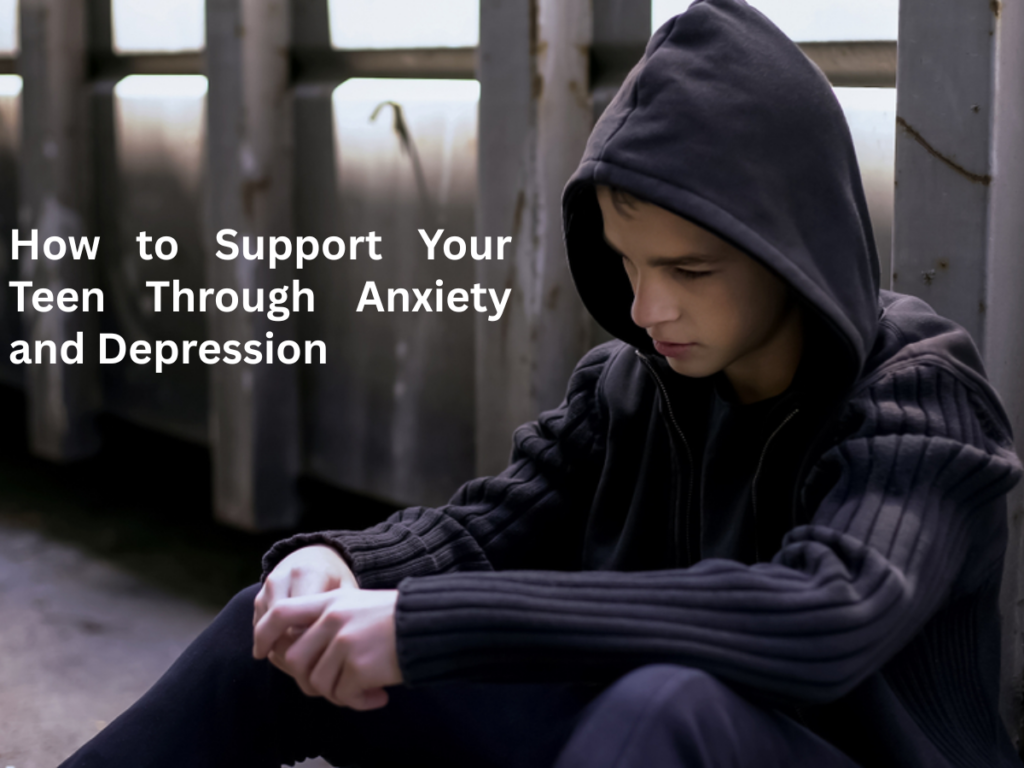
The teenage years are filled with change, challenges, and growth—but for many adolescents, they can also be a time of emotional struggle. Anxiety and depression among teenagers are becoming increasingly common, and yet, many parents and caregivers are unsure of how to support their children through these difficult times. Understanding what your teen is going through and knowing how to help can make all the difference in their mental health journey.
Understanding Teen Anxiety and Depression
Teenagers face unique stressors—academic pressures, social media influence, peer comparisons, identity confusion, and hormonal changes—all of which can contribute to mental health issues. It’s important to know that anxiety and depression are not just “mood swings” or “phases.” They are real, diagnosable mental health conditions that require attention and care.
Signs of Anxiety in Teens:
- Excessive worry about school, friends, or the future
- Trouble sleeping or concentrating
- Physical symptoms like headaches or stomach aches
- Avoiding social situations or certain activities
Signs of Depression in Teens:
- Persistent sadness or hopelessness
- Loss of interest in hobbies or activities
- Withdrawal from friends and family
- Fatigue and lack of motivation
- Changes in appetite or sleep patterns
If your teen shows any combination of these symptoms for more than two weeks, it’s time to seek professional support.
How Parents Can Help
The role of a parent or caregiver is crucial in a teen’s mental health journey. While it’s natural to feel helpless at times, there are several ways to create a supportive environment for your child.
1. Open the Lines of Communication
Let your teen know you are there for them—without judgment. Listen more than you speak, and validate their feelings. Avoid phrases like “It’s just a phase” or “You’ll get over it.” Instead, say things like “I’m here for you” or “That sounds really difficult.”
2. Watch Your Own Reactions
Teens are observant. If you panic, get angry, or shut down, they might hesitate to confide in you again. Stay calm and patient, even when emotions run high.
3. Encourage Healthy Habits
While therapy and medication are vital for some teens, lifestyle changes also play a big role. Encourage your teen to:
- Get regular sleep
- Eat balanced meals
- Exercise regularly
- Limit screen time and social media
These simple habits can help regulate mood and improve overall well-being.
4. Don’t Take It Personally
If your teen lashes out, withdraws, or says hurtful things, understand that it’s often a reflection of their internal struggles—not a reflection of your parenting.
When to Seek Professional Help
Sometimes, despite your best efforts, your teen may need professional intervention. Early treatment is key to preventing long-term issues and helping your teen regain a sense of control and stability.
Look for a qualified psychiatrist who specializes in adolescent mental health. At Cognivia Psychiatry, we understand the unique challenges teens face today. Dr. Neha Gupta, a highly experienced psychiatrist in Pimple Saudagar, Pune, offers compassionate and evidence-based care tailored to young minds.
Treatment may include:
- Cognitive Behavioral Therapy (CBT): Helps teens reframe negative thoughts and manage anxiety.
- Family Therapy: Encourages open communication and problem-solving within the family unit.
- Talk Therapy: Gives teens a safe space to express their thoughts and emotions.
- Medication: In some cases, medication may be recommended alongside therapy to manage symptoms effectively.
How Cognivia Psychiatry Can Help
Dr. Neha Gupta has over a decade of experience in treating teens with emotional, behavioral, and psychological concerns. Her approach is warm, empathetic, and rooted in scientific understanding. She works closely with both teens and parents to develop a personalized treatment plan that promotes healing and growth.
At Cognivia, we also offer educational sessions for parents to help them understand their teen’s mental health condition and become a more supportive ally in their recovery process.
Summary:
Supporting a teenager through anxiety and depression requires patience, open communication, and timely professional help. If you’re looking for a trusted mental health expert, Dr. Neha Gupta, an experienced psychiatrist in Pimple Saudagar, Pune, provides compassionate and specialized care for adolescents at Cognivia Psychiatry. With the right guidance and early intervention, your teen can find their way to emotional wellness.




